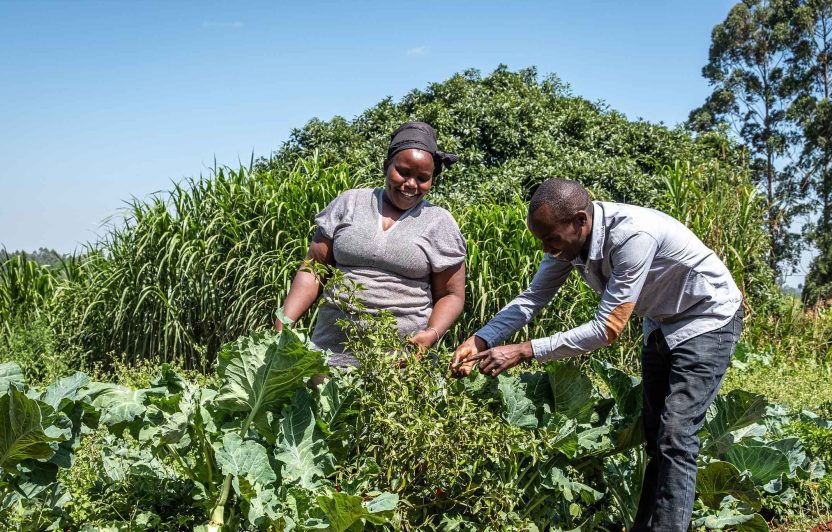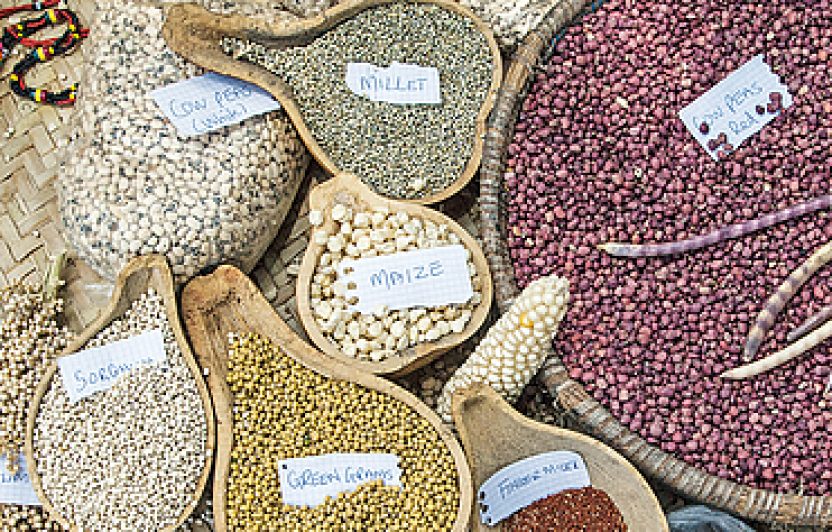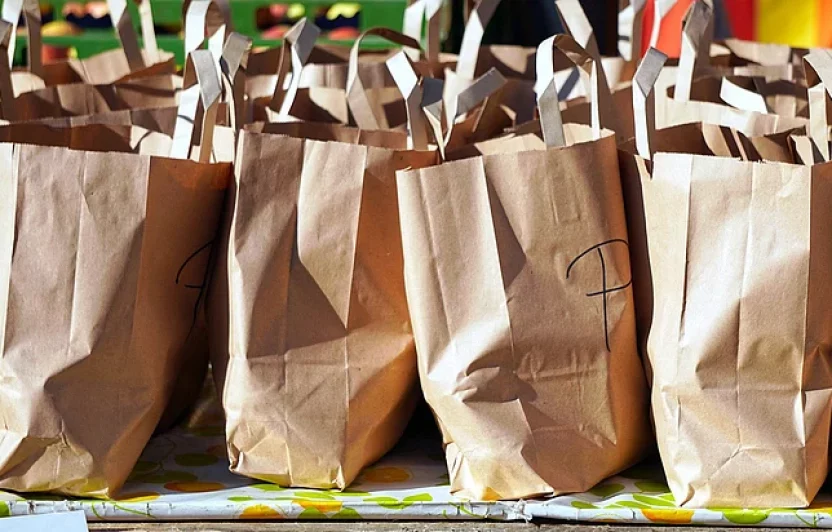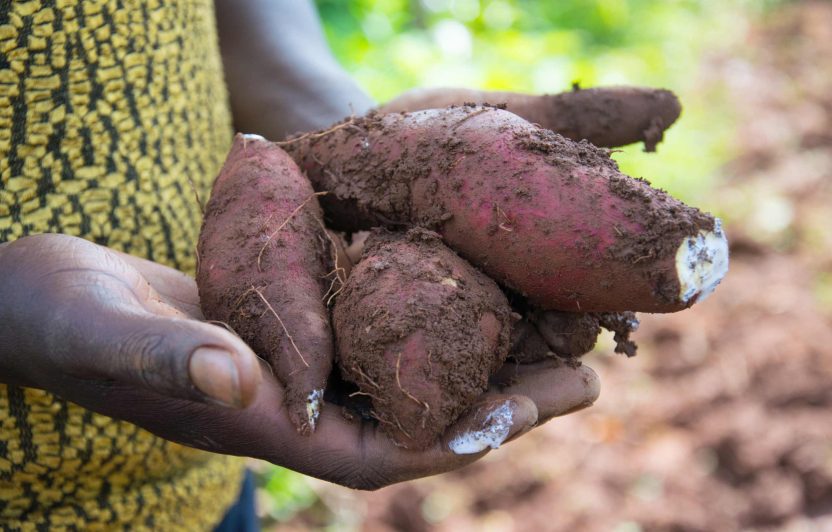Local seeds for more resilient farming
Local seed banks in the Kenyan district of Vihiga are not just for making agriculture more resilient to climate change. Biovision also wants to contribute to the survival of traditional plant varieties. The seed banks provide farming families with an important additional source of income.
Context: Traditional varieties are vanishing
In Kenya, traditional and locally adapted crop varieties are increasingly disappearing. Monocultures are reducing biodiversity and making farmland more vulnerable to drought, pests, and other climate-related risks. At the same time, farming families are exposed to volatile market prices and unpredictable developments, putting their incomes at risk.
Objectives: More diversity, stronger systems
This project aims to build more diverse and resilient food and farming systems. Growing traditional crop varieties helps boost biodiversity, strengthen resilience to climate change, and improve the nutritional quality of local diets.
Biovision and its partner organisations support rural communities in growing and marketing heirloom vegetables. To this end, farmers are setting up local seed banks and agricultural exchange centres – preserving knowledge and creating economic opportunities.
At a glance
Project name:
Local seed increases biodiversity
Beneficiaries: Kenya
Project budget in CHF :
695647
Participants: Consumers Decision-makers in politics Research Institutes Smallholder farmers
Project Officer:
Project phase: 2024-2026
Partner organizations:
The project addresses the following SDGs from UN Agenda 2030:
This project is supported by SDC
Region
Topics
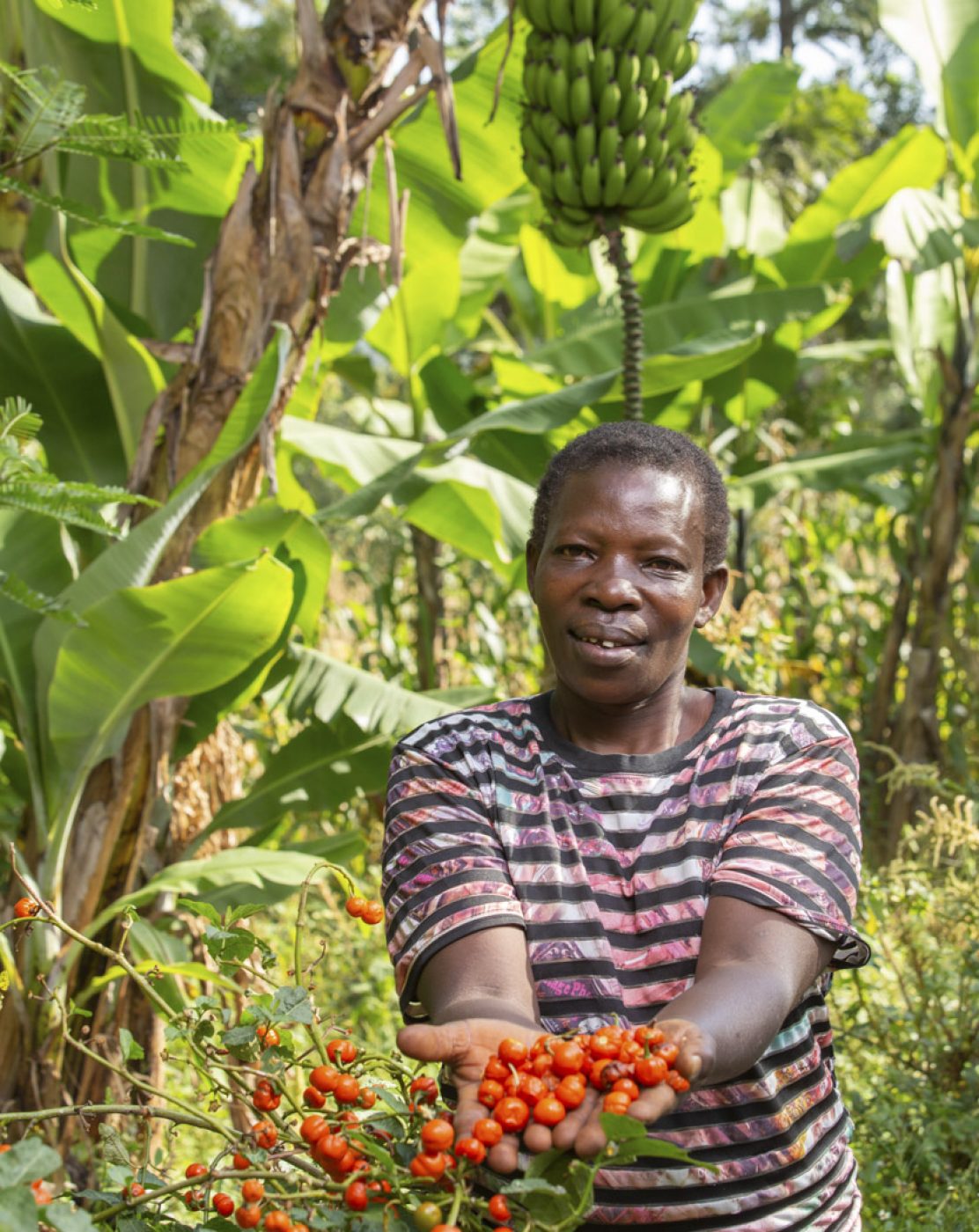
“Before, I only grew kale and pulses. Because of the training, I started looking for a variety of seeds.”
Elizabeth Omusiele, farmer in Vihiga, Kenya
Impact to date: Seeds as a source of income
The seed banks are now running successfully. Many farmers have become seed producers: They grow a wider variety of fruits and vegetables and earn additional income by selling seeds. This not only reduces their dependence on volatile markets, but also increases the resilience of their cultivated land to climate change impacts.
Facts and figures about the project
women and their families have improved their diets
Each trainee passed the knowledge they gained on to at least
other farmers
Next steps: Political support needed
The next step is to involve even more farmers in cultivating traditional crops and diversifying their farming systems. In parallel, Biovision and its partner Bioversity are working to improve the political framework – so that supportive policies can ensure the long-term success of these efforts.
In the video, farmers have their say on how the project supports them
More about this or similar projects
Consumption
Fertig, aus, leer: Wir haben die Erde verbraucht
Der «Earth Overshoot Day», der Tag an dem wir die natürlichen Ressourcen für das Jahr 2020 verbraucht haben werden, ist am 22. August 2020 und damit ganze drei Wochen später als 2019. Der Grund: Das veränderte Reise- und Konsumverhalten aufgrund der Covid19-Pandemie.


